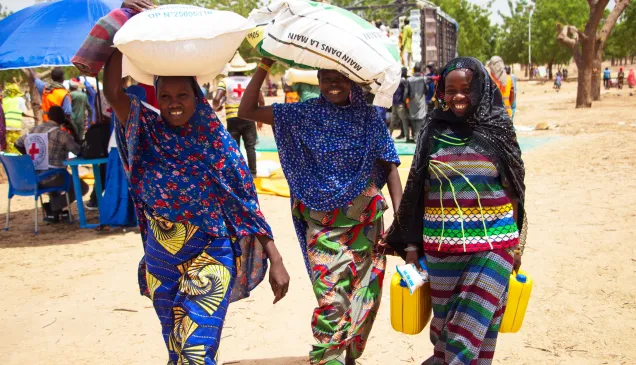United Nations, General Assembly, 70th session, Third Committee, item 68 of the agenda, statement by the ICRC, New York, 15 October 2015.
When a school is attacked, or when children's access to education is otherwise denied, the harm to these children, their families and their communities is profound and often long-lasting. Each day that passes without children being able to go to school is an enormous burden on the future. During armed conflict, children are likely to face significant constraints in accessing education. These may be due not only to the general state of insecurity or lawful military operations, but also to the numerous violations of international humanitarian law (IHL) and other relevant norms that often occur in armed conflict. As an organization whose overarching goal is to address the needs and vulnerabilities of people affected by armed conflict, the International Committee of the Red Cross (ICRC) is unfortunately well aware of the heavy toll this can take on children's lives.
From the ICRC's experience in the field, we see school buildings being targeted directly, damaged incidentally or used for military purposes. Weapons and munitions are occasionally stored or abandoned near or in schools, putting schools at risk of attack as potential military objectives or at risk of incidental damage. The presence of weapons and munitions also directly endangers children until they are completely removed, which might sometimes take years. Parties to armed conflict also come specifically to schools to recruit children; or children are sometimes raped or subjected to other forms of sexual violence in or around schools. As a result of all these factors, parents may prevent their children from attending schools and teachers may stop coming to work.
Children displaced by armed conflict are particularly vulnerable. The ICRC is concerned that these children are often excluded from the educational system for extended periods of time.
At the same time, the use of schools as shelters for displaced people during armed conflict may hamper access to education for resident children. We should also highlight the issue of children deprived of their liberty who suffer from inadequate access to education.
The ICRC undertakes numerous education activities for children affected by armed conflict, such as promoting respect for IHL, and specifically its provisions on access to education, through constant dialogue with parties to armed conflict. The ICRC also works to ensure that children can attend school in safety – for example, by setting up safe spaces for educational purposes, by rebuilding schools damaged in armed conflict, and by working with teachers and students to strengthen their capacity to reduce their exposure and vulnerability to violence. The ICRC also supports local authorities' efforts to ensure that displaced children and children deprived of their liberty have access to education.
Education is in particular paramount for children formerly associated with armed forces or armed groups. Educational and vocational training programmes should be designed and implemented for the specific purpose of reintegrating these children into their families and communities.
IHL contains a number of important provisions that explicitly set out the need for parties to armed conflict to take care that children have access to education, in both international and non-international armed conflict, and the ICRC calls upon parties to armed conflict to fulfil these obligations. The ICRC also calls on parties to armed conflict to comply with all other provisions of IHL, including those governing the conduct of hostilities. These provisions, in particular, prohibit attacks against civilians (including children and teachers), and civilian objects like schools, unless and for such time that they have lost protection from attack. These provisions also require parties to armed conflict to take precautions in attack and against the effects of attack.
Furthermore, we are of the view that parties to armed conflict should make every effort possible under the prevailing circumstances to prevent schools being used for purposes that could cause them to lose their protection as civilian objects. In this respect, the ICRC has followed with interest recent initiatives to prevent schools and universities from becoming part of the battlefield, which can provide useful guidance on what practical steps can be taken to reduce the military use of educational facilities.
Armed conflict imposes immense suffering on children. Much of this suffering could be prevented by increasing knowledge of, and respect for, the rules of international humanitarian law.
The ICRC calls on parties to armed conflict to fulfil their obligations concerning education in armed conflict and to ensure respect and protection for children in all circumstances.



